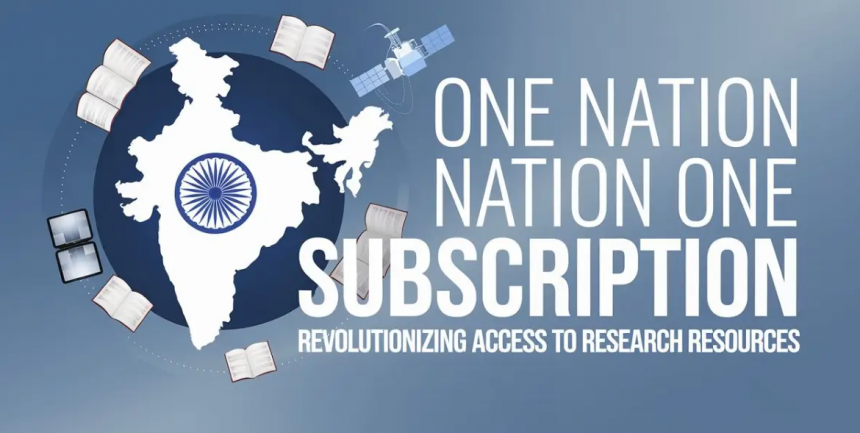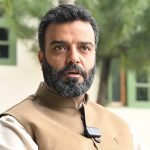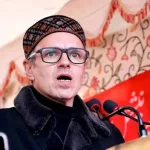In a time when knowledge is the cornerstone of national development, the availability of scholarly resources to all sectors of society becomes not just a privilege but a fundamental necessity. One Nation, One Subscription (ONOS) is a progressive initiative introduced by the Government of India to ensure equitable and affordable access to academic and scientific literature across the country.
It is a bold step towards democratizing knowledge and supporting the country’s researchers, students, faculty, and institutions, regardless of their financial or geographical limitations. For the library and information science (LIS) community, this initiative carries significant weight, offering both opportunities and responsibilities in equal measure.
The concept doesn’t emerge in a vacuum. Historically, professional development in LIS has often been fragmented. Opportunities vary drastically by institution, region, and individual capacity to pay for association memberships, conferences, or specialized courses. While associations and institutions valiantly offer resources, access remains unequal. ONOS draws inspiration from broader national unification efforts and the open-access movement, aiming to dismantle these barriers.
The roots of the ONOS initiative can be traced back to the recommendations of the Science, Technology, and Innovation Policy (STIP) 2020 draft. The urgency of implementing a nationwide access model became especially apparent during the COVID-19 pandemic, which disrupted access to physical libraries and exposed the vast digital divide across educational and research institutions.
Recognizing this gap, the government proposes a centralized, nationally funded (or subsidized) subscription; the nation would negotiate with publishers for access to scholarly databases, ensuring that every Indian institution could benefit from high-quality academic resources under a single subscription model.
The significance of ONOS lies in its potential to transform the Indian academic and research landscape. Primarily, it guarantees that students and researchers from remote, under-resourced institutions will have the same access to information as those in premier universities. This promotes inclusivity, fosters innovation, and removes long-standing barriers to participation in global academic discourse.
Consequently, it allows for more efficient use of public funds. Instead of multiple institutions purchasing the same resources at varying prices, a centralized purchase reduces duplication and leads to significant cost savings. Additionally, the initiative promotes a culture of research and knowledge exploration by enabling learners and scholars to interact with cutting-edge studies and peer-reviewed content without worrying about subscription costs.
The impact of ONOS on the LIS profession will be multifaceted. Library professionals will play a key role in managing, disseminating, and promoting awareness of these newly available resources. With digital access taking center stage, the role of librarians will shift further towards digital content management, information literacy training, and user guidance. The initiative also empowers public and community libraries to emerge as local centers of learning and digital access, thereby enhancing their relevance in the digital age.
The collaboration between universities and industry could intensify, fueled by shared, unrestricted knowledge. The quality of higher education could see a marked improvement as faculty and students engage directly with global scholarship. It could also stimulate the growth of Indian open-access journals and repositories, strengthening the domestic academic ecosystem. The policy signals India’s commitment to becoming a true knowledge powerhouse.
Yet, the road to realizing ONOS is paved with formidable challenges. The sheer financial cost of national licenses for top-tier publishers is astronomical, requiring complex negotiations and sustained budgetary commitment. Publisher resistance to altering lucrative subscription models is inevitable.
Technical infrastructure—ensuring seamless, high-volume access across the vast nation—demands a robust digital backbone and cybersecurity. Defining the precise scope of resources covered requires careful curation to maximize value. Crucially, implementation logistics, including authentication systems and user support, need meticulous planning.
Addressing these demands decisive action. Negotiations must be difficult, leveraging India’s enormous user base to get fair pricing and even adopting tiered structures or consortium approaches. Concurrent investment in broadband infrastructure and digital literacy is non-negotiable. Phased rollouts, starting with core resources, can build momentum and demonstrate value.
Equally important is the need for awareness programs, training workshops, and user education campaigns that empower users to navigate scholarly databases, evaluate sources, and ethically use information. Establishing feedback mechanisms will also help in understanding user needs and refining the implementation strategy over time. Crucially, ONOS must be integrated with efforts to strengthen Indian open-access publishing, ensuring it complements rather than replaces domestic knowledge production.
One Nation One Subscription is a visionary policy with the potential to transform India’s intellectual landscape. It embodies the powerful idea that knowledge, particularly that funded by public investment globally, should flow freely to those who can use it to build a better future. While the practical hurdles are significant and demand shrewd strategy, unwavering political will, and sustained investment, the potential rewards—a more equitable, innovative, and knowledge-empowered India—are immeasurable.
For LIS professionals, it is a moment to rise as facilitators of information justice and digital inclusion. By embracing this initiative and preparing ourselves with the right skills and mindset, we can ensure that the gates of knowledge remain open for all. In doing so, we not only uplift our profession but also contribute meaningfully to the intellectual and developmental progress of the nation.
(Author is pursuing PG in Library and Information Science (MLIS) from the University of Kashmir)








